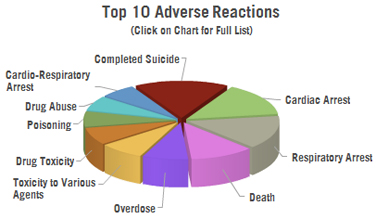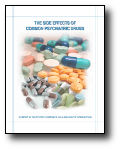 The documented risks of these drugs are provided so the public can make informed, educated decisions. Valium is a benzodiazepine (antianxety drug). The U.S. Drug Enforcement Administration warns that benzodiazepines can bring about hostility, as well as physical dependence. Valium is also known as Cercine, Diastat, Diazem, Diazepam, Ducene, Hexalid, Horizon, Nordiazepam, Saromet.
The documented risks of these drugs are provided so the public can make informed, educated decisions. Valium is a benzodiazepine (antianxety drug). The U.S. Drug Enforcement Administration warns that benzodiazepines can bring about hostility, as well as physical dependence. Valium is also known as Cercine, Diastat, Diazem, Diazepam, Ducene, Hexalid, Horizon, Nordiazepam, Saromet.
To see the total figures from IQVia on the number of people taking antianxiety drugs in the U.S., click here.
Please note: No one should attempt to get off of psychiatric drugs without a doctor’s supervision. To help find medical practitioners in your area, click here.
Also, read the FDA’s Valium Medication Guide for more information. MedGuides include “the particular serious and significant public health concern that has created the need for the Medication Guide” and notes “pediatric risks.” (Note: Unfortunately, the FDA MedGuides only work on a desktop, not on a mobile device. Please complain to the FDA to make their public advisories accessible to all. 1-888-INFO-FDA or 1-888-463-6332.)
Valium Drug Warnings:
There has been one drug regulatory agency warning from Australia warning that Valium (or diazepam) can cause nightmares.
Valium Drug Studies:
There have been 11 studies done in six countries (Australia, Canada, France, Sweden, United Kingdom and United States) on Valium (or diazepam). These include the following (note that some studies cite more than one side effect, so the list below may not be equal to the total number of studies):
2 studies on Valium causing dementia
2 studies on Valium causing violence
2 studies on Valium causing aggression
1 study on Valium causing death or increased risk of death
1 study on Valium causing homicidal ideation
1 study on Valium causing risk of fractures
1 study on Valium causing impaired driving or sleep-driving
1 study on Valium causing suicide risk or attempts
Adverse Reaction Reports Filed with the US FDA: There have been 3,139 adverse reactions reported to the US FDA in connection with Valium.
The FDA estimates that less than 1% of all serious events are ever reported to it, so the actual number of side effects occurring are most certainly higher.
- 441 cases of completed suicides
- 393 cases of cardiac arrest
- 393 cases of respiratory arrest
- 302 cases of death
- 214 cases of overdose
- 203 cases of drug toxicity
- 177 cases of drug abuse
- 169 cases of cardio-respiratory arrest
- 141 cases of multiple drug overdose
- 119 cases of somnolence (sleepiness)
Documented Side Effects of Valium:
Source: Physicians Desk Reference, National Institutes of Health’s Medline Plus, and/or the drug label.
Agitation
Blurred vision
Confusion
Difficulty breathing or swallowing
Dizziness
Drowsiness
Fatigue
Fever
Irregular heartbeat
Loss of muscle coordination
Low blood pressure
Muscle weakness
Nausea
Persistent tremor or inability to sit still
Seizures
Severe skin rash
Shuffling walk
Vertigo
Yellowing of the skin/eyes
Click here to learn more >>
This brochure is a simple guide that documents the dangerous and deadly side effects of the drugs prescribed to millions of men, women and children diagnosed with bogus mental disorders.



 Download The Side Effects of Common
Download The Side Effects of Common
SHARE YOUR STORY/COMMENT